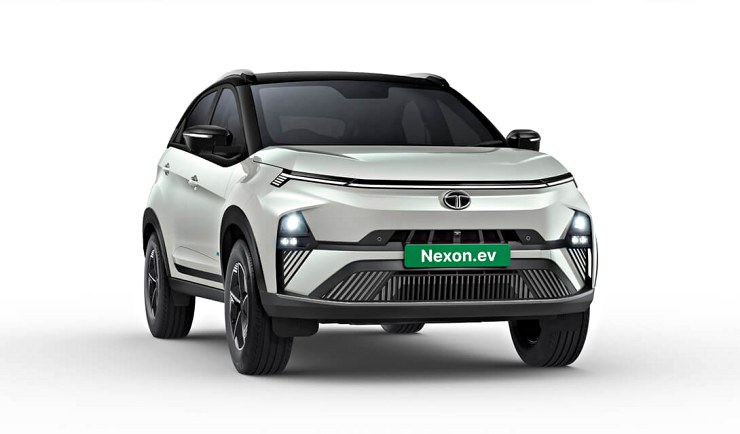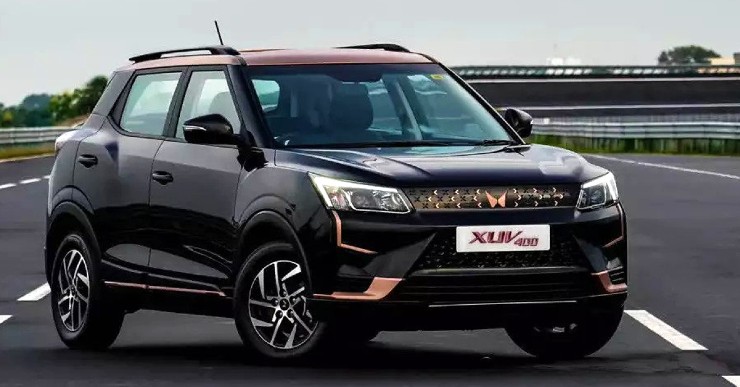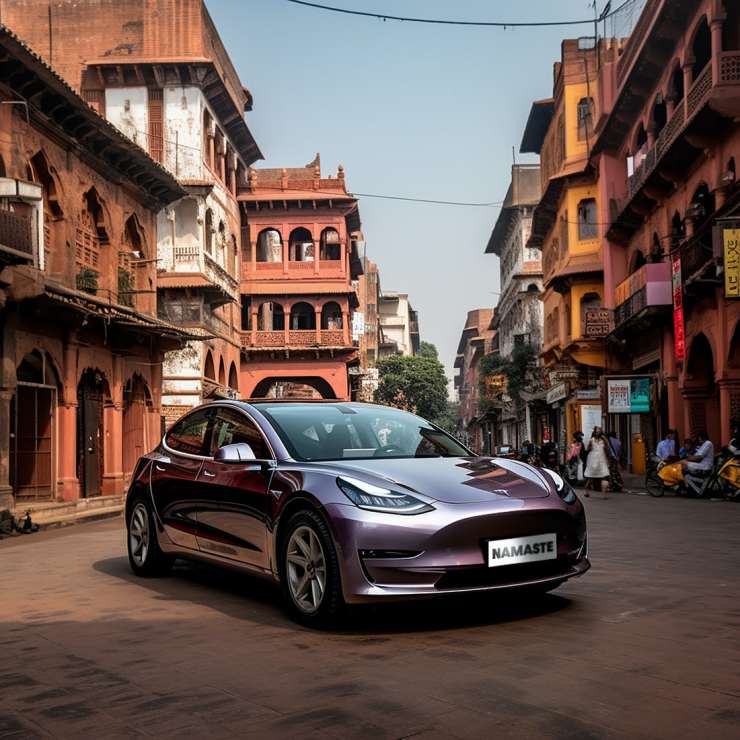Indian car makers Tata Motors, Mahindra oppose duty cut for imported EVs including Teslas
Indian automakers, including key players like Tata Motors and Mahindra & Mahindra, are expressing their reservations against potential duty cuts on high-end electric vehicles (EVs), particularly for manufacturers like Tesla. The government is contemplating various options, including a temporary reduction in import duties. However, industry insiders are concerned about the potential negative impacts on existing investments and market positions.
The government, while exploring these options, is encountering resistance even from within its own ranks. Officials are wary of the move due to potential revenue loss and the perception of supporting the luxury segment over the administration’s current emphasis on benefitting the common man.
The situation has triggered apprehensions among Indian automobile giants, including Tata Motors, Mahindra & Mahindra, Maruti Suzuki, and Hyundai. The consideration of reducing import duties specifically for luxury electric vehicle manufacturers, like Tesla, is causing unease in the domestic automotive sector. A senior government official disclosed that one option being deliberated is a temporary reduction in import duties. However, no final decision has been reached, and the policy is expected to undergo further evolution after consultations with various auto companies.
Tesla, advocating for lower import duties on its vehicles, has also expressed interest in establishing a manufacturing base in India to produce more affordable variants for both the domestic and export markets. However, companies like Tata Motors and Mahindra & Mahindra are vehemently opposing any relaxation in import duties. They argue that such a move could undermine their sales and business prospects, especially after substantial investments have been made.
“They argue that a duty cut now would contradict the government’s previous commitment to rewarding those who invested early and locally,” mentioned a source cited in a Times of India report.

Tata Motors and Mahindra & Mahindra are already active participants in the market, committed to the Production-Linked Incentive (PLI) scheme. Their opposition to duty cuts aligns with their commitment to supporting those who have invested in the country. Japanese automakers, who are yet to venture into the electric vehicle segment in India, are concerned about the future of their hybrids. They rely on these hybrids until their EVs become available in the market.

The Society of Indian Automobile Manufacturers (SIAM) is actively engaged in discussions with various companies and is formulating its official stance, which will be communicated to the government. The general sentiment is expected to align with the demands of the domestic industry, opposing significant tariff reductions.
German automakers, including BMW, Mercedes-Benz, and the Volkswagen Group, are adopting a cautious approach, awaiting the unfolding of the situation. They seek a ‘level-playing field’ and are observing the developments closely. Some have already invested in the assembly of electric vehicles and hope for fewer commitments in local investments to qualify for duty relaxation.
The potential move is met with skepticism not only from industry players but also from within the government, as it raises concerns about revenue loss, favoring the luxury segment, and limiting negotiating opportunities in free trade agreements. Proponents of the policy argue that increased competition will spur the adoption of electric vehicles. The situation remains fluid as consultations and discussions continue within the automotive sector and government circles.
Indian automakers, including key players like Tata Motors and Mahindra & Mahindra, are expressing their reservations against potential duty cuts on high-end electric vehicles (EVs), particularly for manufacturers like Tesla. The government is contemplating various options, including a temporary reduction in import duties. However, industry insiders are concerned about the potential negative impacts on existing investments and market positions.

The government, while exploring these options, is encountering resistance even from within its own ranks. Officials are wary of the move due to potential revenue loss and the perception of supporting the luxury segment over the administration’s current emphasis on benefitting the common man.
The situation has triggered apprehensions among Indian automobile giants, including Tata Motors, Mahindra & Mahindra, Maruti Suzuki, and Hyundai. The consideration of reducing import duties specifically for luxury electric vehicle manufacturers, like Tesla, is causing unease in the domestic automotive sector. A senior government official disclosed that one option being deliberated is a temporary reduction in import duties. However, no final decision has been reached, and the policy is expected to undergo further evolution after consultations with various auto companies.
Tesla, advocating for lower import duties on its vehicles, has also expressed interest in establishing a manufacturing base in India to produce more affordable variants for both the domestic and export markets. However, companies like Tata Motors and Mahindra & Mahindra are vehemently opposing any relaxation in import duties. They argue that such a move could undermine their sales and business prospects, especially after substantial investments have been made.
“They argue that a duty cut now would contradict the government’s previous commitment to rewarding those who invested early and locally,” mentioned a source cited in a Times of India report.

Tata Motors and Mahindra & Mahindra are already active participants in the market, committed to the Production-Linked Incentive (PLI) scheme. Their opposition to duty cuts aligns with their commitment to supporting those who have invested in the country. Japanese automakers, who are yet to venture into the electric vehicle segment in India, are concerned about the future of their hybrids. They rely on these hybrids until their EVs become available in the market.

The Society of Indian Automobile Manufacturers (SIAM) is actively engaged in discussions with various companies and is formulating its official stance, which will be communicated to the government. The general sentiment is expected to align with the demands of the domestic industry, opposing significant tariff reductions.
German automakers, including BMW, Mercedes-Benz, and the Volkswagen Group, are adopting a cautious approach, awaiting the unfolding of the situation. They seek a ‘level-playing field’ and are observing the developments closely. Some have already invested in the assembly of electric vehicles and hope for fewer commitments in local investments to qualify for duty relaxation.
The potential move is met with skepticism not only from industry players but also from within the government, as it raises concerns about revenue loss, favoring the luxury segment, and limiting negotiating opportunities in free trade agreements. Proponents of the policy argue that increased competition will spur the adoption of electric vehicles. The situation remains fluid as consultations and discussions continue within the automotive sector and government circles.
